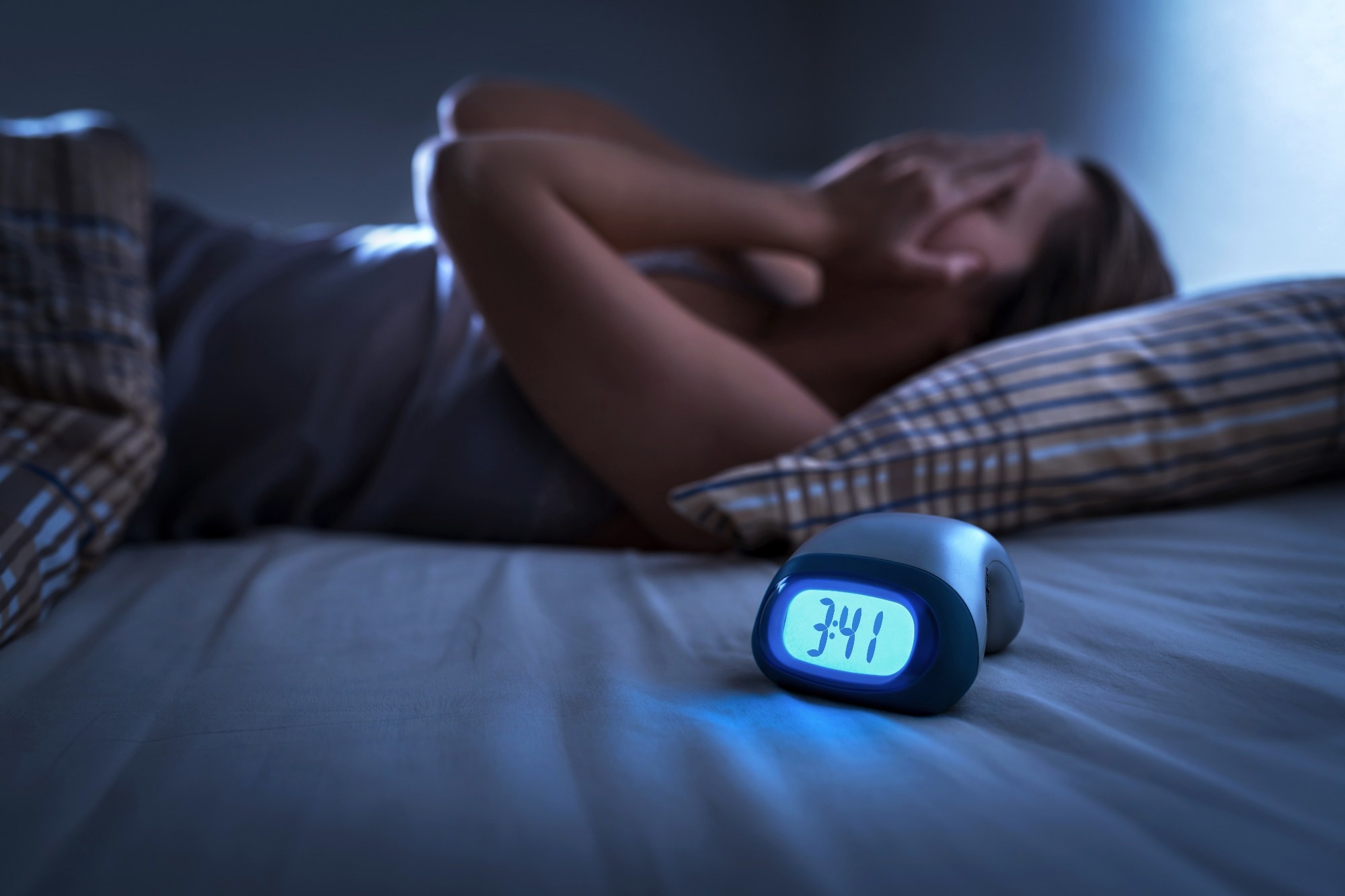
[ad_1]
In a current research revealed within the journal JAMA Community Open, researchers evaluated the affiliation between sleep patterns and age-associated cognitive alterations amongst older adults.
 Examine: Longitudinal Sleep Patterns and Cognitive Impairment in Older Adults. Picture Credit score: Tero Vesalainen / Shutterstock
Examine: Longitudinal Sleep Patterns and Cognitive Impairment in Older Adults. Picture Credit score: Tero Vesalainen / Shutterstock
Background
Amyloid deposition, which seems ≥15 years earlier than cognitive impairment, precedes cognitive decline. The best therapy technique could also be to focus on pathogenic mechanisms early within the illness’s development. Figuring out the components that precede cognitive and useful decline can result in remedy and prevention many years earlier than the event of dementia.
Sleep disturbance has been related to dementia; nevertheless, it’s unknown how longitudinal variations in sleep have an effect on the prevalence of cognitive impairments. Quick sleep period and poor sleep high quality are related to the next pathological load of Alzheimer’s illness. Easy sleep metrics prohibit research that exhibit a relationship between persistent sleep disturbance and dementia prognosis.
Concerning the research
Within the current research, researchers investigated whether or not longitudinal patterns of self-documented sleep period had been related to cognitive impairment amongst older adults.
The group longitudinally analyzed the Seattle Longitudinal Examine (SLS) information; the research assessed cognitive perform (between 1997 and 2020) and self-documented sleep durations (between 1993 and 2012) amongst older adults. The group enrolled SLS members from the Well being Upkeep Group (HMO) of Washington and the Group Well being Cooperative (GHC) of Puget Sound from 1956 to 2020. The researchers included solely people who supplied full demographic information and those that had been administered the neuropsychologic battery and crammed out the Well being Conduct Questionnaire (HBQ).
Self-reported demographic information included intercourse (male or feminine), ethnicity, race, apolipoprotein E ε4 (APOE*E4) allele provider standing, and academic attainment. The members crammed out the HBQ each three to 5 years, 5 occasions from 1993 to 2012, and underwent neuropsychological assessments each 5 to seven years from 1997 to 2019. Cognitive impairment was the research consequence, as described by performances under thresholds on the Mattis Dementia Score Scale (DRS, scores under 129) and the Mini-Psychological State Examination (MMSE, scores under 26). As well as, the SLS neuropsychological battery included the Heart for Epidemiologic Research-Melancholy Scale (CES-D).
Sleep period was self-reported because the median of evening sleep over the earlier week and evaluated longitudinally at a number of time factors. The researchers evaluated sleep phenotypes [short sleep (less than seven hours), medium sleep (seven hours), long sleep (more than seven hours)], median period of sleep, sleep period alterations, and sleep variability. They carried out Cox proportional-type hazard regression modeling to find out the hazard ratios (HRs) and information evaluation between September 2020 and Could 2023.
Outcomes
Among the many SLS members enrolled initially, just one,104 who accomplished neuropsychological assessments and the HBQ had been included within the research after excluding 278 people missing demographic info, particularly the APOE genotype. Consequently, 826 people [with a mean age of 76 years; 57% (n=468) women; 26% (n=217) APOE*E4 carriers] comprised the research inhabitants.
Cox proportional regression modeling (concordance, 0.8) confirmed that larger variability in sleep patterns (HR, 3.1) and quick sleeper standing (HR, 3.7) had been considerably associated to cognitive impairment. The group noticed larger cognitive decline with advancing age. Of 614 people, 44 (seven %) confirmed a cognitive decline on the last evaluation, with the next cognitive decline amongst older people.
Instructional attainment (HR, 1.2) and possessing ≥1.0 APOE*E4 copies (HR, 2.1) had been considerably associated to cognitive impairment. Modeling contemplating the affect of melancholy confirmed that APOE*E4 provider standing (HR, 2.1) and academic attainment (HR, 1.1) had been considerably associated to cognitive decline threat. Quick sleepers (HR, 2.8) and growing variability in sleep patterns (HR, 2.2) had been considerably associated to age-associated cognitive decay.
Incorporating longitudinal sleep evaluation parameters within the fashions confirmed that a number of components had been considerably associated to cognitive impairment threat, together with instructional attainment (HR, 1.3), APOE*E4 provider standing (HR, 2.7), short-sleep phenotypes (HR, 3.7), and better variability in sleep patterns (HR, 3.1). The research discovered a major correlation between age and academic attainment, with older people being much less educated.
Nonetheless, the group discovered no vital variations in APOE*E4 allele standing by age. World CES-D scores confirmed that people aged 65 to 84 years reported decrease melancholy in comparison with these aged <56 and ≥85 years. Age additionally considerably influenced sleep period, with older people experiencing longer sleep durations and fewer short- and medium-sleepers. Age was related to decrease sleep variability throughout longitudinal sleep period assessments.
General, the research findings confirmed that quick sleep period and vital sleep variability had been related to poor cognitive perform. Continual sleep disturbance might increase heart problems, metabolic syndrome, stroke, melancholy, and diabetes dangers, which improve cognitive decay threat. Sleep deprivation is related to elevated amyloid plaque load in addition to quicker ventricular enlargement, aggravating Alzheimer’s disease-associated neurodegeneration. Sleep-active-type glymphatic exercise aids amyloid, α-synuclein, and tau clearance, whereas acute sleep deprivation decreases it.
[ad_2]